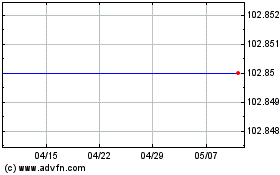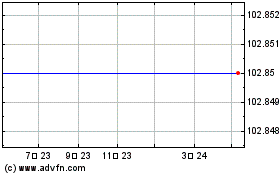PAP Adherence Lowers ER Visits 24-36% in 1 Year for People with Sleep Apnea and Heart Failure: ResMed Studies Presented at SLEEP
2023年6月8日 - 10:00PM

PAP Adherence Lowers ER Visits 24-36% in 1 Year for People with
Sleep Apnea and Heart Failure: ResMed Studies Presented at
SLEEP
People with heart failure and obstructive sleep apnea (OSA) can
significantly reduce hospitalizations and ER visits as well as
related costs by being adherent on positive airway pressure (PAP)
therapy, according to two studies supported by ResMed (NYSE: RMD,
ASX: RMD) and presented at SLEEP 2023.
Key ResultsOne retrospective study showed
people with OSA and systolic heart failure and adherent to PAP had
24% fewer ER visits and incurred 40% lower costs related to
hospitalizations and ER visits over 1 year ($3,500 vs. $5,879)
compared to non-adherent patients. The study analyzed 1,472 people,
exactly half adherent on PAP, half non-adherent.
The second retrospective study showed people with OSA and
diastolic heart failure and adherent to PAP had 36% fewer ER
visits, 57% fewer hospitalizations, and incurred 18% lower related
costs (an average $12,732 vs. $15,610) over 1 year. This study
analyzed 1,926 people, again exactly half adherent on PAP, half
non-adherent. It also found that converting a non-adherent PAP user
in this study to an adherent one would save them an average 1.25
visits.
The studies hold significant implications for managing heart
failure patients, since 76% of them also have sleep apnea.1
“Since 3 out of 4 people with heart failure also have sleep
apnea,1 these findings underscore the significant role PAP
treatment plays in keeping people healthy and out of the hospital,”
said Fatima Sert Kuniyoshi, MSc, PhD, lead author and ResMed
clinical research director. “I hope this leads to a greater
emphasis on PAP prescription and monitoring for the sake of
patients as well as the hospitals and ERs that would otherwise
require added beds and resources to care for them.”
Also from SLEEP: 200 million women have mild
OSAResMed supported 10 abstracts presented this week at
SLEEP 2023, including a global multi-study analysis that estimated
over 200 million women worldwide have mild obstructive sleep apnea.
That’s equal to 13.4% of women ages 30-70 – or over 1 in 8.
The study’s abstract points out that while PAP treatment is
beneficial in treating mild OSA, the key to optimizing health
outcomes is first diagnosing it – particularly in women: “Females
with OSA tend to be milder than their male counterparts, with lower
AHIs, less oxygen desaturations, and different symptoms such as
fatigue and insomnia. [Therefore], females with mild OSA are at
risk of being underdiagnosed and undertreated.”
Overall, an estimated 936 million people worldwide have sleep
apnea, ranging from mild (5-14 apneic events per hour) to severe
(over 30 per hour).2
About ResMed At ResMed (NYSE: RMD, ASX: RMD) we
pioneer innovative solutions that treat and keep people out of the
hospital, empowering them to live healthier, higher-quality lives.
Our digital health technologies and cloud-connected medical devices
transform care for people with sleep apnea, COPD, and other chronic
diseases. Our comprehensive out-of-hospital software platforms
support the professionals and caregivers who help people stay
healthy in the home or care setting of their choice. By enabling
better care, we improve quality of life, reduce the impact of
chronic disease, and lower costs for consumers and healthcare
systems in more than 140 countries. To learn more, visit
ResMed.com and follow @ResMed.
1 Oldenburg O et al. Eur J Heart Fail 20072 Benjafield AV et al.
Lancet Respir Med 2019
|
For Media |
For Investors |
| Kristin Deuber |
Amy Wakeham |
| resmed@allisonpr.com |
investorrelations@resmed.com |
| |
|
| Rowena Kelley |
|
| news@resmed.com |
|
Resmed (LSE:0KW4)
過去 株価チャート
から 12 2024 まで 1 2025

Resmed (LSE:0KW4)
過去 株価チャート
から 1 2024 まで 1 2025
